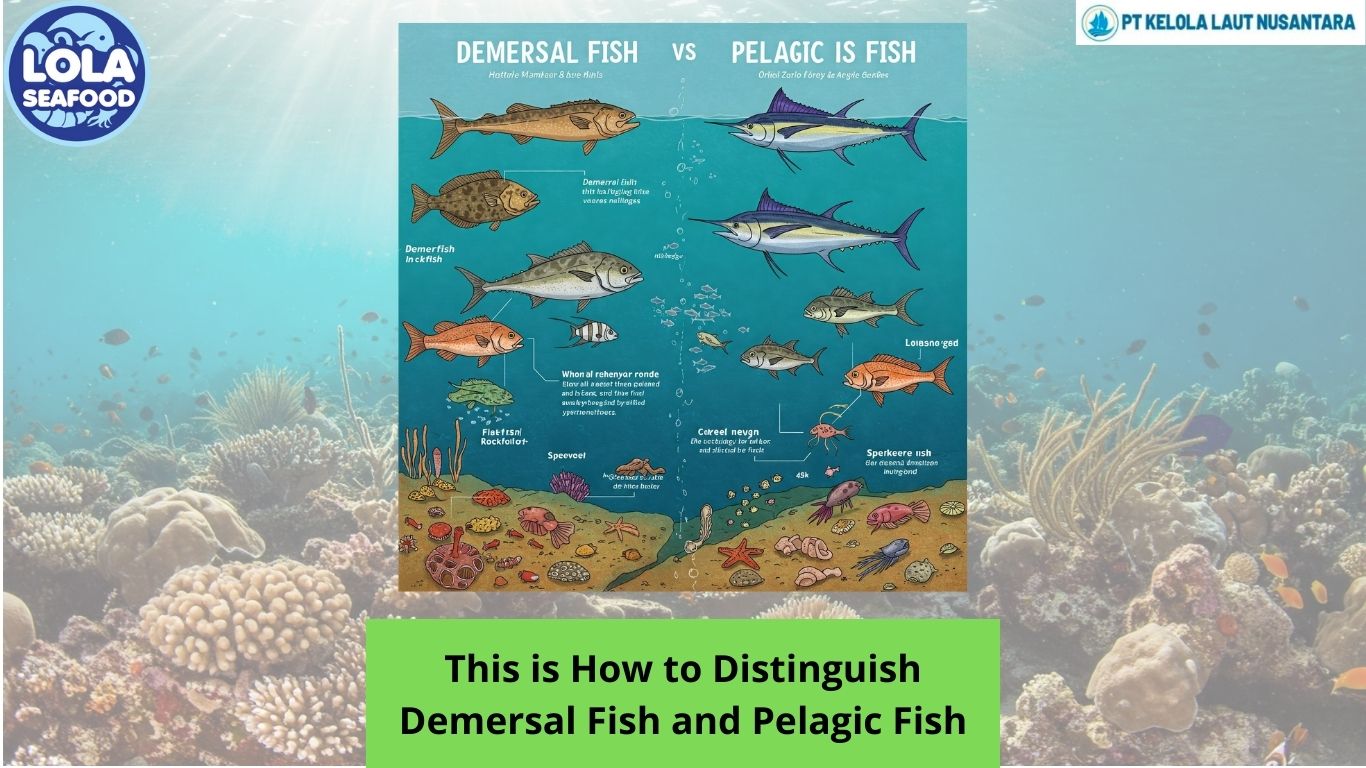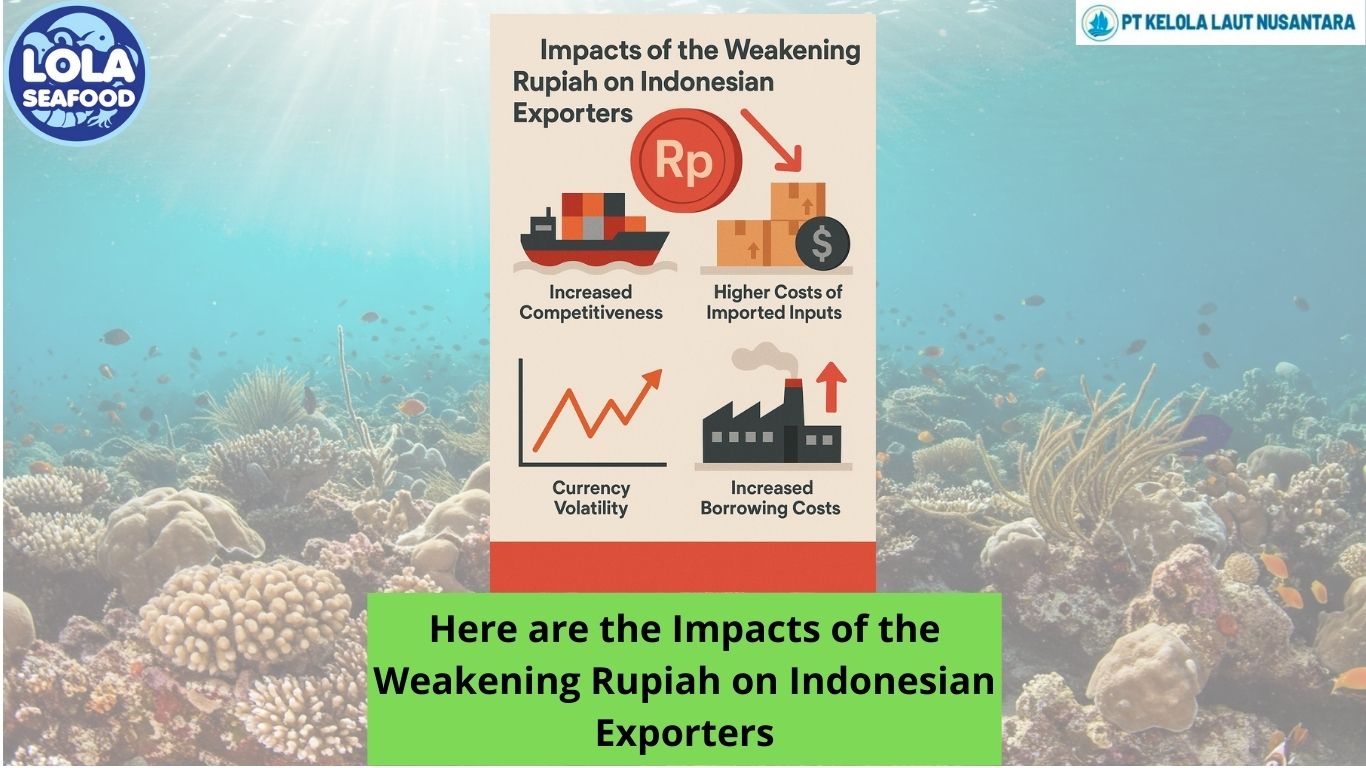The Impact of Snapper Fillet Exports on the Local and Global Economy
By. Nugroho Luhur - 16 Dec 2024
kelolalaut.com
1. Positive Impacts of Snapper Fillet Exports on the Local Economy
- Increase in Income for Fishermen and Fish Farmers:
The export of snapper fillets offers significant opportunities for fishermen and fish farmers in Indonesia to increase their incomes. With high demand in the global market, fishermen have an incentive to catch more snapper and process them into fillet products for export. This allows them to earn higher prices compared to selling fresh fish in the local market. - Job Creation:
The fish processing industry, particularly in producing snapper fillets, creates many jobs at the local level. From fishermen, fish processors, to workers in processing factories, everyone benefits from the export of snapper fillets. This industry also encourages the growth of small and medium-sized enterprises (SMEs) involved in the supply chain, such as raw material suppliers, packaging, and distribution. - Infrastructure and Investment Growth:
The increasing export of snapper fillets also drives the development of supporting infrastructure such as ports, fish processing facilities, as well as logistics and distribution systems. This not only facilitates the export process but also boosts the local economy by attracting investment in related sectors.
2. Positive Impacts of Snapper Fillet Exports on the Global Economy
- Meeting International Market Demand:
Indonesia, as one of the largest producers of snapper, plays a significant role in supplying high-quality seafood products to international markets. Countries such as Japan, the United States, and the European Union are major markets for Indonesian snapper fillet exports. These products meet the global demand for fresh and healthy fish, providing consumers with a premium seafood option. - Increased International Trade and Economic Diplomacy:
The export of snapper fillets opens opportunities for Indonesia to expand its trade relations with other countries. This not only benefits the fisheries sector but also boosts other related sectors such as international transportation and banking. Successful export of snapper fillets can also be an instrument of economic diplomacy, strengthening Indonesia's image as a country rich in marine resources. - Diversification of Global Seafood Supply:
The increasing demand for snapper fillets from Indonesia contributes to the diversification of global seafood supply. Countries dependent on fish imports to meet consumer demand can obtain a diverse and high-quality supply of fish, helping to maintain price and supply stability.
3. Negative Impacts of Snapper Fillet Exports on the Local Economy
- Dependency on Exports and Price Instability:
Although the export of snapper fillets brings profit to local businesses, there is a risk of high dependency on international markets. When global demand declines or price fluctuations occur, it can directly impact the income of fishermen and the fish processing industry. Failing to manage this dependency can lead to economic instability in regions that rely heavily on snapper fillet exports. - Sustainability Issues with Marine Resources:
One of the negative impacts of snapper fillet exports is the over-exploitation of marine resources, which could affect the sustainability of snapper populations. If fisheries management is not properly implemented, it may lead to a decline in snapper stocks, which would ultimately harm fishermen and the fish processing industry in the long term. - Social and Economic Inequality:
Snapper fillet exports tend to benefit larger businesses and fish processing companies more than small-scale fishermen. This can exacerbate social and economic inequality among groups involved in this industry, especially in coastal areas. Without policies that support the empowerment of small fishermen, they may be left behind in sharing the economic benefits.
4. Negative Impacts of Snapper Fillet Exports on the Global Economy
- Dependency on Supply from Certain Countries:
Although Indonesia is one of the main exporters of snapper, global markets' dependence on supply from a single country or region can create uncertainty in the supply of snapper fillets. Political tensions, natural disasters, or changing trade policies can disrupt this supply and lead to price spikes in global markets.
Broader Environmental Impacts:
The export of snapper fillets could also contribute to larger-scale environmental damage on a global level. Unsustainable fishing practices and pollution from fishing activities can damage marine ecosystems and negatively affect global biodiversity.
If you are interested in our Red / Scarlet Snapper Fillet Portion please do not hesitate to contact us through email and/or whatsapp.

.jpg)
.jpg)
.jpg)




